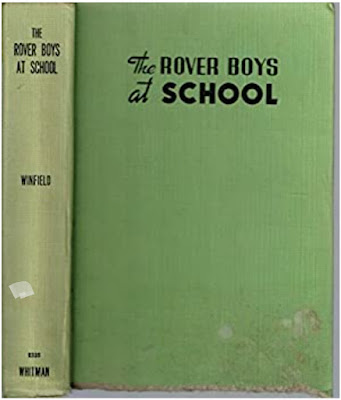THE ROVER BOYS AT SCHOOL
Or
THE CADETS OF PUTNAM HALL
By Arthur M. Winfield
(Edward Stratemeyer)
INTRODUCTION
My Dear Boys:
"The Rover Boys at School" has been written that those of you who have never put in a term or more at an American military academy for boys may gain some insight into the workings of such an institution.
While Putnam Hall is not the real name of the particular place of learning I had in mind while penning this tale for your amusement and instruction, there is really such a school, and dear Captain Putnam is a living person, as are also the lively, wide-awake, fun-loving Rover brothers, Dick, Tom, and Sam, and their schoolfellows, Larry, Fred, and Frank. The same can be said, to a certain degree, of the bully Dan Baxter, and his toady, the sneak, commonly known as "Mumps."
The present story is complete in itself, but it is written as the first of a series, to be followed by "The Rover Boys on the Ocean" and "The Rover Boys in the Jungle," in both of which volumes we will again meet many of our former characters.
Trusting that this tale will find as much favor in your hands as have my previous stories, I remain,
Affectionately and sincerely yours,
EDWARD STRATEMEYER
Buy Arthur M Winfield Books at Amazon
About the Author
The PDF might take a minute to load. Or, click to download PDF.
If your Web browser is not configured to display PDF files. No worries, just click here to download the PDF file.




No comments:
Post a Comment